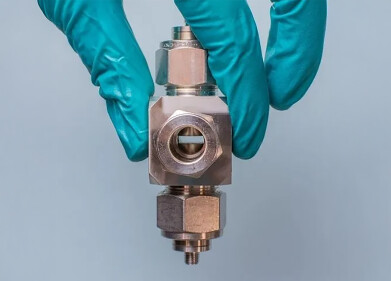Analytical Instrumentation
Why Has Coronavirus Affected Oil Demand?
Mar 10 2020
It's not often the world sees a global pandemic but when it does, the knock on effect on markets can be devastating. Since the first case of COVID-19 was reported in Wuhan in December 2019, the virus has infected more than 113,000 people globally and claimed more than 4000 lives. It's also wreaked havoc on the international energy market, bringing economic activity to a halt and slashing demand for oil.
Petroleum analysts say flailing demand in China is one of the biggest drivers of the downturn. The People's Republic is one of the biggest oil consumers in the world, using imports to power factories producing cars, electronics, clothes, food and other goods. Since the coronavirus outbreak thousands of Chinese factories have been shut down in a bid to contain the outbreak. As a result, Chinese oil demand has plummeted by around three million barrels a day. This represents around 20% of total consumption.
As well as dwindling demand in China, the IEA warns that in the wake of the coronavirus outbreak overall global oil demand will drop for the first time since 2009. Analysts predict that if Chinese demand for oil fails to pick up, global demand could drop by up to 730,000 barrels per day in 2020.
Market braces for biggest slump since global financial crisis
In response, the world’s major oil producers have been scrambling to introduce production cuts to stabilise prices. Initial talks discussed cuts of around 600,000 barrels a day, though experts suggest even 1 million barrels per day wouldn't be enough. Though despite the efforts, the stock market is bracing for the biggest fall seen since the global financial crisis, with the price of Brent crude tumbling by almost 30% to a low of US$31.14 earlier in the week. This marks the most drastic slump since the Gulf War started in 1991.
Price stabilisation hopes lie with Russia
Unless Russia and Saudi Arabia return to the negotiation table to discuss a possible embargo, analysts predict prices could fall even further. Russian President Vladimir V. Putin has attempted to ease the slump, suggesting that the country is willing to work together with OPEC to stabilise prices amid the COVID-19 outbreak. In a recent article published by Reuters, Putin referred to Russia's three-year alliance with OPEC as "an effective instrument to ensure long-term stability on global energy markets."
With prices slipping maximising efficiency is more important than ever for refineries. For a closer look at how catalysts are being used to achieve productivity goals, don't miss 'Optimise Catalyst Efficiency by Monitoring Cl with Petra MAX.
Digital Edition
PIN 25.5 Oct/Nov 2024
November 2024
Analytical Instrumentation - Picturing Viscosity – How Can a Viscometer or a Rheometer Benefit You? - Sustainable Grease Formulations: Evaluating Key Performance Parameters and Testing Method...
View all digital editions
Events
Dec 03 2024 Dusseldorf, Germany
Dec 08 2024 Anaheim, CA, USA
Turkey & Black Sea Oil and Gas
Dec 11 2024 Istanbul, Turkey
Dec 19 2024 Aurangabad, India
Jan 20 2025 San Diego, CA, USA



















